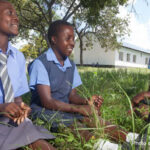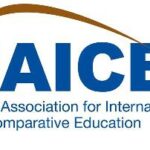Deadline: Friday, 1 April 2022
Conference dates: Thursday, 23 June and Friday, 24 June 2022
Location: Blavatnik School of Government, University of Oxford, UK; international hubs (TBC); and virtually
We invite you to submit a paper for, or express your interest in attending (virtually or in-person), the Research on Improving Systems of Education (RISE) Programme Annual Conference (see the 2021 Annual Conference event page).
The RISE Programme applies systems thinking to education. We seek to understand why learning outcomes in a particular school, district, or country are poor, and why the (system) conditions causing these low learning levels exist. This understanding can then inform attempts to realign the relationships in the education system to be coherent for learning, meaning that every component works together with the goal of improving learning for all.
The 2022 RISE Conference will cover a range of themes under the broad umbrella of education systems thinking. It will draw on research undertaken in RISE countries—Ethiopia, India, Indonesia, Nigeria, Pakistan, Tanzania, and Vietnam. In addition, we are issuing an open call for papers from researchers working on these and any other developing countries.
Submitting your paper
Submissions are invited in any area of research relating to education systems, including all themes at past RISE conferences (PDF). Papers touching on the following topics are particularly welcome:
- Positive/negative deviance and outliers—Some schools consistently outperform or underperform others, despite being similar on observable schooling inputs. What do positive deviants do differently from negative deviants? Where, when, and why do strategies and behaviours cross-pollinate or get suppressed? Careful empirical papers addressing these (and related) questions qualitatively and/or quantitatively are particularly welcome.
- Long-term trajectories of change—Taking a longer time frame can often prove illuminating in education systems research. Papers documenting historical comparative education system performance, or the impact of long-term interventions, or results from long-term follow-ups are all warmly encouraged.
- Generalisability—Education researchers are often asked ‘what works’ but find heterogeneity complicates the answer. Papers documenting heterogeneity (or homogeneity) based on careful reviews of different interventions or on replications of the same intervention are welcome, as are methodological papers exploring how best to answer the perennial ‘what works’ question.
RISE is keen to solicit academic papers presenting original research on these topics from across the social science disciplines/methodologies. We also welcome submissions based on evidence-constituting experiential reflections that will directly inform the discussion of these topics.
Full papers should be submitted by Friday, 1 April 2022 via our online submission form. Abstracts will be considered for inclusion. (Please note that our submission process has changed from that of previous years in which we requested submissions by email.)
Authors of accepted papers will be notified no later than 9 May 2022.
Registering your interest in attending the conference
The RISE Annual Conference 2022 will be held at the Blavatnik School of Government, University of Oxford, UK. Attendees can also join the proceedings virtually or in-person at a regional conference hub (TBC). Spaces are limited at the venues, so please register your interest in attending the event as soon as possible. Confirmation of places will be sent out in early May.
If you are interested in attending the conference either in person or virtually, please visit the RISE website and fill in the online form.
Email queries regarding paper submission or participation in the conference can be directed to the RISE communications team (rise@bsg.ox.ac.uk).
Register your interest in attending the RISE Conference (virtually or in person)
RISE Conference Themes 2016-2021 (Call for Papers)
Download the Call for Papers to see a full list of previous conference themes in PDF form.
Papers on any of these themes, or on other areas of research relating to education, are also welcome.





